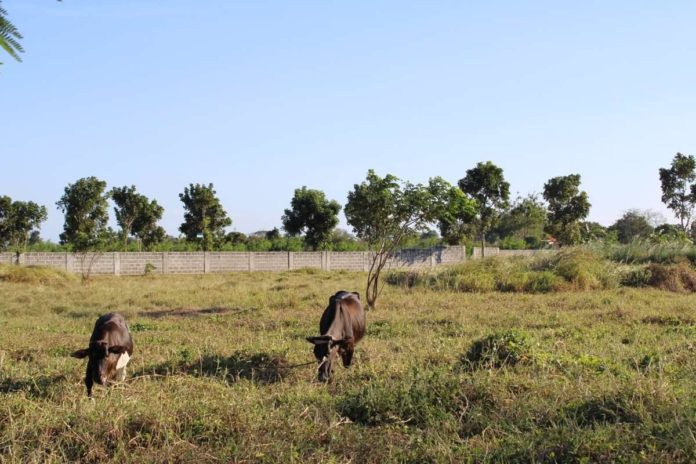
ILOILO – Amid the heat waves triggered by the El Niño phenomenon, poultry and livestock farmers in the province are being urged to safeguard their animals against the harsh, hot, and dry weather conditions.
“Given the extreme heat we’re experiencing, it is crucial for our farmers to ensure their animals are not exposed to excessively hot conditions,” Dr. Darel Tabuada, head of the Provincial Veterinary Office (PVO), told Panay News.
Tabuada emphasized the importance of keeping animals such as carabaos, cows, and goats in shaded or cool areas with adequate ventilation to help them cool down.
It is equally vital to provide them with sufficient water and multivitamins, such as electrolytes, to replenish their body water, he added.
The Philippine Atmospheric, Geophysical and Astronomical Services Administration (PAGASA) has been alerting the public about the heat index levels across Western Visayas, which have reached the “extreme caution” category.
Under this classification, temperatures can cause health issues such as discomfort, heat stroke, heat cramps, and heat exhaustion.
Tabuada said animals should also not be overworked in the field and should only work during the cooler parts of the day, either early in the morning or late in the afternoon.
“Farmers are knowledgeable about caring for and adjusting to their animals’ needs. For example, during summer, cattle and carabaos tend to be healthier because farmers know how to properly store food for their livestock,” said Tabuada.
He believes that taking these steps to secure livestock can reduce the adverse effects of El Niño.
The PVO reported that the damage to the province’s livestock and poultry supply due to El Niño has been “
“very minimal and not significant.”
“There have been Rapid Assessment of Damages Reports submitted by some towns, but the impact is not considered significant,” said Tabuada.
So far, there have been no reported casualties or deaths among livestock or poultry, aside from stress, exhaustion, and skin diseases caused by the hot weather, which farmers promptly address.
Tabuada noted that farmers are proactive in monitoring their livestock and quickly seek a livestock technician or veterinarian’s help at the first sign of symptoms.
There have also been reports of reduced egg production submitted to the PVO.
However, Tabuada downplayed concerns about egg shortages in the province, explaining that the majority of the egg supply comes from Cebu and Luzon.
“The effect on our egg sufficiency level is not significant since most of our table eggs are sourced from Cebu and Luzon,” he said.
On March 6, a peak heat index of 41 degrees Celsius was recorded at 2 p.m., while the highest heat index PAGASA-Iloilo recorded this year was 42 degrees Celsius on Jan. 5.
Engr. Ferdinand Rubin Jr., a weather specialist at PAGASA-Iloilo, pointed out that the hottest part of the day typically occurs from 1 p.m. to 3 p.m., falling within the extreme caution category. Temperatures of 40 degrees Celsius or above are considered dangerous.
He noted that these conditions are seasonal, especially during the traditionally hot and dry months of March, April, and May, when the heat index can reach between 40 and 44 degrees Celsius.
The El Niño phenomenon and easterlies, or winds from the Pacific Ocean, contribute to the very high heat index, in addition to the onset of the summer season.
Rubin has previously alerted the public to the possibility of even hotter weather in March and April, potentially leading to drought conditions in April or May. The provinces at risk of experiencing drought include Negros Occidental, Iloilo, Antique, and Guimaras, with drought defined as three consecutive months of significantly below-normal rainfall (less than a 60 percent reduction from average).
To mitigate the effects of the heat, PAGASA Iloilo advises the public to drink plenty of water, avoid direct sun exposure, refrain from strenuous activities under the sun, use an umbrella for protection, and wear light clothing to reduce heat absorption./PN



